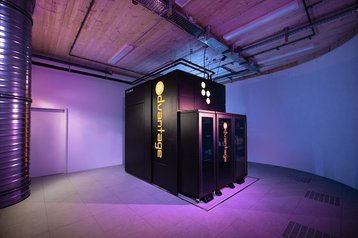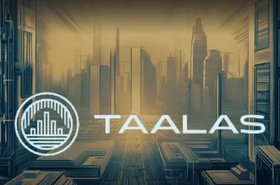For the second time this year, quantum computing firm D-Wave is facing delisting from the New York Stock Exchange (NYSE) over its low stock price.
The company this week announced that it received notice from the NYSE on October 20 that it is not in compliance with listing requirements as the average closing price of the company’s common stock was less than $1 over a consecutive 30 trading-day period.
D-Wave said it has notified the NYSE that it intends to “cure the stock price deficiency” and to return to compliance with the stock exchange’s listing standards.
The company has six months to bring its share price back above a $1 average closing share price over a 30-day period.
In the SEC filing announcement of the news, D-Wave also said it would be canceling annual cash bonuses at the company.
“In canceling the cash incentive bonuses, the board took into consideration a number of factors, including the company’s ongoing commitment to manage the business efficiently and effectively, its focus on achieving profitability, and the general market conditions in the company’s industry and the tech industry overall.,” the company said. “The company remains dedicated to fairly and equitably compensating and incentivizing its employees and regularly considers and implements a variety of compensation alternatives intended to motivate and retain its employees and attract new talent.”
This is the second time this year the company has faced delisting. In March, D-Wave received notice from the New York Stock Exchange that it had fallen foul of NYSE trading rules over its low trading price. By July the company announced it had received a letter of re-compliance after meeting the minimum share price listing standard.
D-Wave, which offers quantum machines that utilize quantum annealing, went public in August 2022 after a SPAC merger with DPCM Capital.
After reaching highs of $8.18 per share in October 2022, the company’s share values tumbled and had been below $1 from mid-February to mid-May. After returning above the $1 mark and reaching highs of $2.90 in July, the stock has dropped since and remained below $1 since mid-September.
At the time of writing the company’s stock is trading at $0.79, valuing the company at $113.67 million.
In February, fellow quantum computing firm Rigetti faced a similar delisting from the Nasdaq after its stock had been trading below the required $1 threshold for around two months. The company never made a public announcement that it has regained compliance with listing requirements, but has traded above $1 since May.
D-Wave is due to announce its Q3 earnings in the coming weeks. The company's revenue for the second quarter of fiscal 2023 was $1.7 million, an increase of $336,000, or 25 percent, from Q2 2022.
Net loss for the second quarter of fiscal 2023 was $25.9m, compared with a net loss of $13.3m in Q2 2022.
Adjusted EBITDA for the second quarter of fiscal 2023 was negative $14.9m, compared with a negative $11.3 million in the fiscal 2022 second quarter.
Bookings for the second quarter of fiscal 2023 were $2.5m, an increase of $1.5m on the same quarter last year.
D-Wave revenue for the first quarter of fiscal 2023 was $1.6m, net loss for the quarter was $24.6m, and adjusted EBITDA for the first quarter of fiscal 2023 was a loss of $16.9m.
In other quantum news:
- Atom Computing says it has created a 1,225-site atomic array, currently populated with 1,180 qubits, in its next-generation quantum computing platform. The array will be included in the company’s next system, slated for release next year.
- IonQ this week announced it has achieved 29 algorithmic qubits on a barium platform for the first time. The company previously utilized ytterbium ions but has switched to barium as it believes the technology is more scalable.
IonQ is also now offering 24/7 access and support for its cloud-accessible quantum systems – IonQ Harmony and IonQ Aria.







